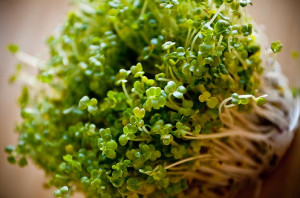The latest medical discoveries for breast cancer and cancer, for the week ending 5 December 2014 from Google Alerts.
Anyone who has breast cancer probably knows about the benefits of eating broccoli or broccoli sprouts. Both contain (amongst other worthy substances) sulforaphane, which has cancer-fighting properties.

Image credit: thearrowoftruth.com
Now a company, Evgen, has jumped on the bandwagon and created a sulforaphane supplement. They’ve made it sound like the cure for cancer, but I’m not sure how this supplement differs from say, Indole-3-carbinole or DIM.
So should we all rush out and buy the family pack?
Here’s what Food For Breast Cancer has to say:
“We recommend consuming broccoli as food and against consuming broccoli pills that have been enhanced to boost the proportion of the presumed key anti-cancer chemicals in broccoli.
There is some evidence that concentrated cruciferous vegetable extracts can act as estrogen agonists and promote breast cancer cell proliferation.
Also, the anticancer properties of broccoli are likely to be the result of synergistic interaction of its various chemical components – isolated components have successfully inhibited proliferation in the laboratory, but their efficacy and safety in humans needs to be evaluated in large scale clinical trials.”
It’s very tempting to get your greens from a pill, and if you’re like me always on the look-out for the latest cancer cure-all, but once again moderation is the key. Get your sulforaphane from the food you eat.

